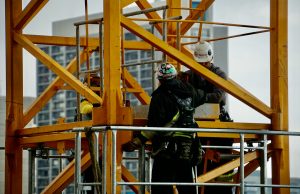There is a plethora of reasons why a company would choose to rent an office space, rather than purchase it outright, and as there always is with such endeavours, there are more things to look out for and be wary of in renting than in buying.
So, whether you are currently looking for new office space and are ready to move as soon as you can, or else are planning a restructure soon, then continue reading.
Here are four things you have to know when renting an office in a commercial building.
1. Make Sure the Rental Terms Are Crystal Clear
When someone advises you to ‘always read the small print’, you may well understandably think that there cannot be any real benefit in going through everything in detail when you have spoken everything through with the landlord beforehand.
However, especially when it comes to renting in a commercial building, it is essential that the rental terms are as simple as they possibly can be and that you leave nothing to chance. Think about the length of the rental agreement, rent increases, and any clauses which could make a difference further down the line.
2. Check Out the Commercial Landlord
Unless you are in the minority and a definite exception to the norm, it is more than likely that you intend on renting your office premises from a commercial landlord, who owns an entire building, only part of which you intend to lease.
Wherever possible, it is far, far better to contact a renowned, reputable, and established company, such as theworkstation.co.uk, which has been working with smaller and large companies for several years and has a strong reputation within the industry.
3. You Should Not Be Responsible for Essential Maintenance
The items and technologies within your office space that your company brought with you are entirely your responsibility to maintain, but when it comes to the foundations and the structural components of the building itself, it should be down to the landlord.
Before you sign anything, read through the lease agreement in its entirety and check whose official and legal responsibility it is to take care of maintenance and repairs. It may well be the case that the company from which you are renting have their own in-house team to handle such matters, or conversely, it may be your responsibility to call someone to complete the repairs and then bill the landlord afterwards.
4. Take a Tour of the Local Area Yourself
Even the most thorough Google search will still not be an entirely accurate and all-encompassing way to make sure that the area in which potential office space is located is in the right place.
It is for this reason that you, or at least a couple of your employees, should take the time to check the proximity of the building to local transport networks, amenities, the train station, banking facilities, and even shops and cafes.














